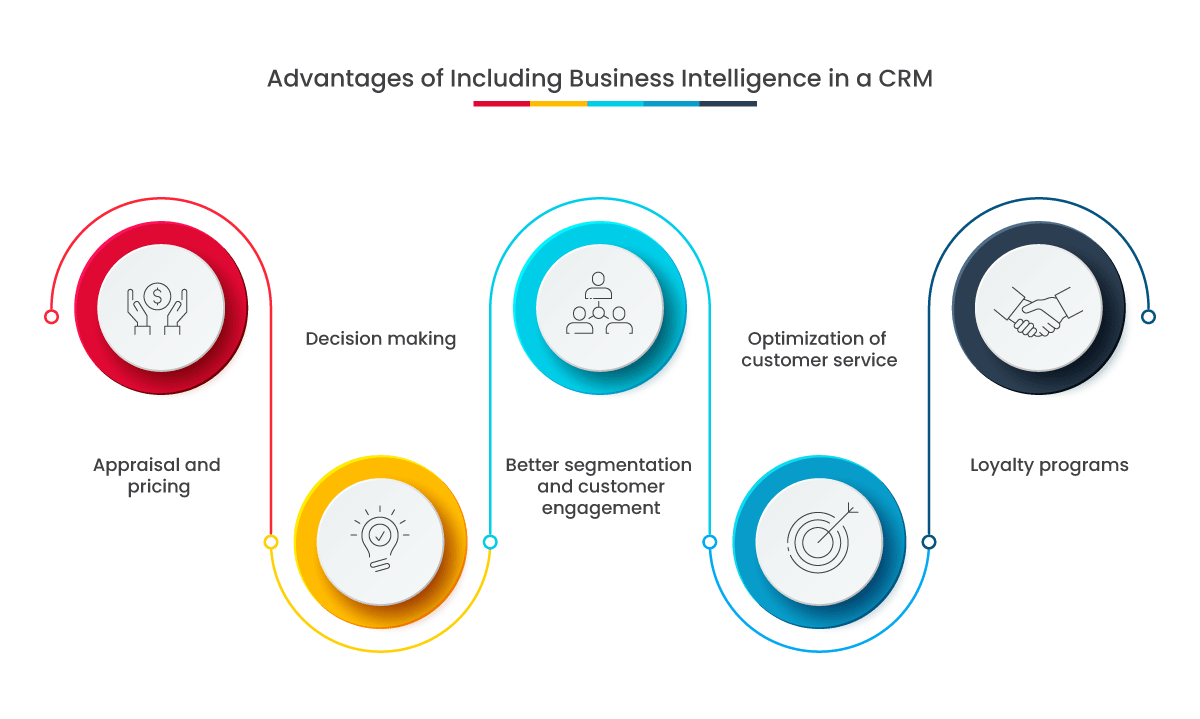In the business world, there is some discussion between the use of business intelligence (BI) tools and CRMs and which ones a company should choose. Although these solutions have data processing at their core and may have somewhat similar functions; the truth is that their objectives and potentialities differ greatly.
CRMs are in charge of optimizing customer relationships who are in search of positive experiences with the brand. On the other hand, business intelligence is based on the processing of large volumes of data in order to provide concise arguments in decisions. In short, they are two powerful solutions for any company and instead of choosing one over the other, it would be smarter to take advantage of the business intelligence within your CRM.
Business Intelligence
Business intelligence was born to rationalize the huge volumes of data that resulted from the evolution of technology and social networks. Everything from Cloud applications and email marketing tools to supply chain systems contain massive amounts of business data. Moreover, only specialized software for Big Data processing can turn these colossal amounts of information into vital reports for business decision making.
BI provides reports, key performance indicators (KPIs), graphical dashboards, and much more. It also highlights the strengths and weaknesses of a company, new market trends, and business opportunities. Business intelligence, however, is not just a single piece of software; rather, it is a set of processes that extract valuable information from dissimilar data sources. Therefore, it does not focus on a specific area of a company, but instead focuses on the company as a whole, providing greater functionality and uses.

7 Key Benefits of Business Intelligence
Find out about the benefits you will get from using business intelligence in your company and how it can help you make better strategic decisions.
The Role of Business Intelligence in a CRM
The information provided by business intelligence is of no use if it is not understood and adapted into strategies based on its results. With its integration to a CRM, you could take advantage of the data obtained in order to optimize the relationships with your customers and make more accurate business decisions.

Other advantages of including BI in your CRM are:
- Appraisal and pricing: With the help of big data resulting from interactions with customers, companies can more accurately price products and services. BI would contribute to the management of dynamic prices looking for increases in income, supported by the review of real-time inventory and supplier data. All together it would provide better financial forecasts and customer behavior trends.
- Decision making: By processing a larger volume of data, BI can distinguish various trends around marketing such as shopping behavior analysis, preferred hours, favorite trends, and industry influences. With this, a CRM can better interact with its customers and influence their opinions in favor of the brand.
- Better segmentation and customer engagement: with the results obtained from the Big Data processing of BI, a CRM can recognize customer behavior. This allows a better differentiation,segmentation, and identification of those market niches that are still unexplored. Likewise, it is also possible to interact proactively with customers through emails, calls, sales meetings, and therefore providing enough valuable content. All this has a positive impact on the customer’s experience with the brand.
- Optimization of customer service: with the huge volume of data processed by BI, multichannel marketing strategies can be implemented with personalized messages and outreach programs. This increases interaction with customers, improves their experience, and increases sales and audience retention.
- Loyalty programs: A CRM can take advantage of the information offered by BI to recognize which are the most profitable customers for the company. With that information, you can work on building your relationship with them and provide loyalty benefits. This has a favorable effect on customer satisfaction which improves retention rates and increases the possibility of being recommended to other people.
At SkyPlanner, our team is trained in business intelligence best practices. In addition, we have the necessary experience to update your existing business intelligence tools, integrate them with third parties, create dashboards and other data visualizations, as well as execute ETL (Extract, Transform and Load) processes with your company information. If you want to know more about the advantages of including BI with your CRM, you can contact us at hello@theskyplanner.com.



